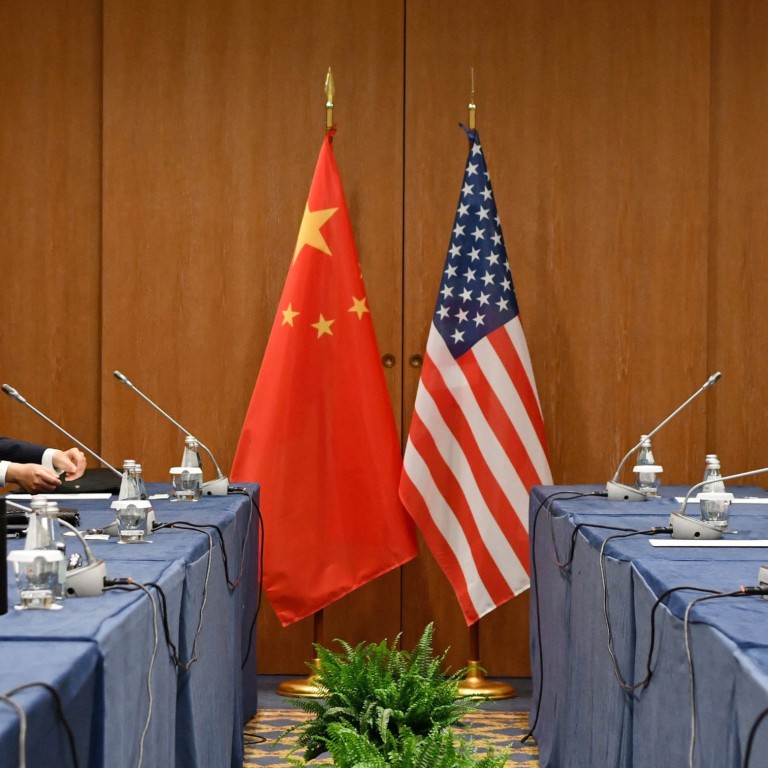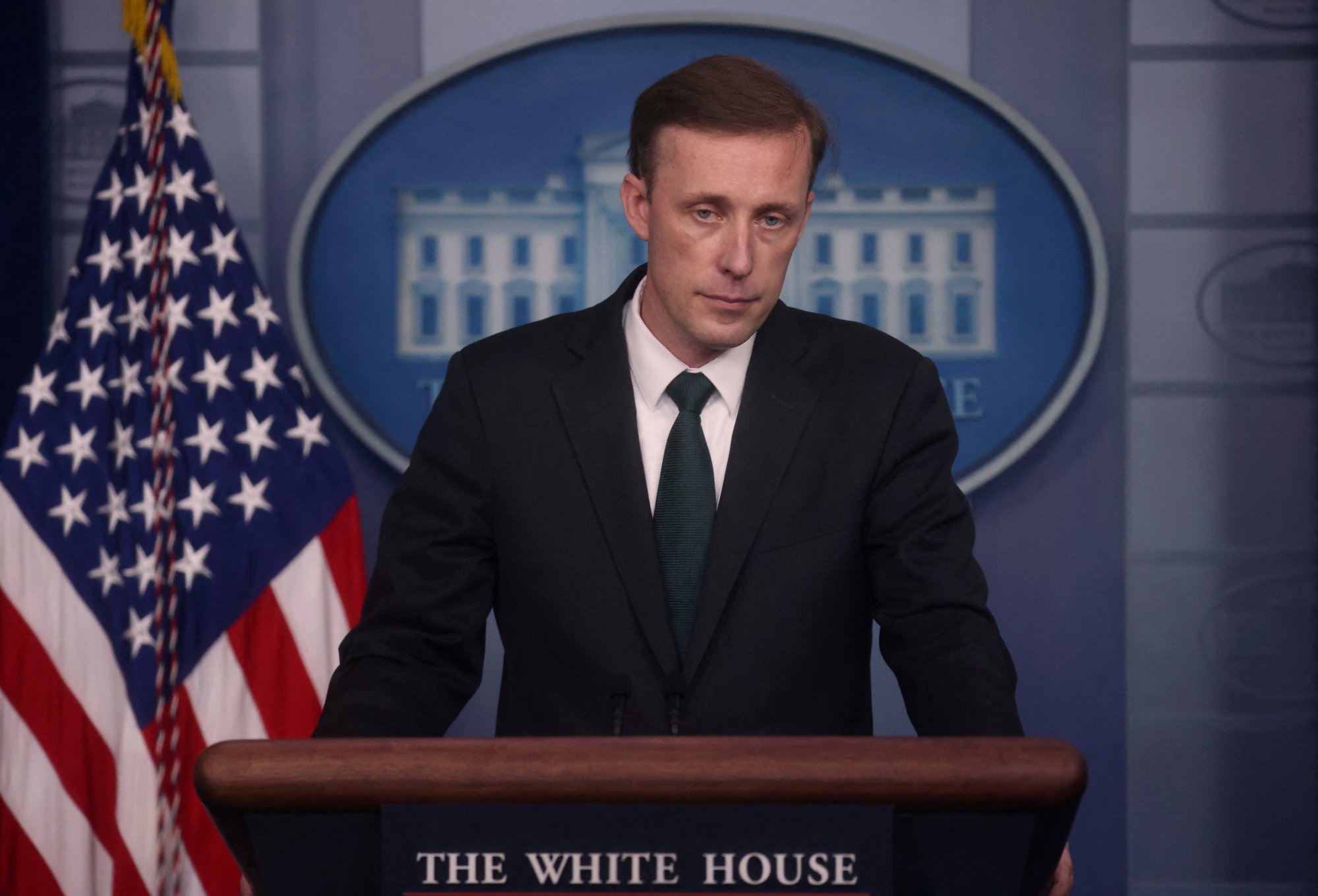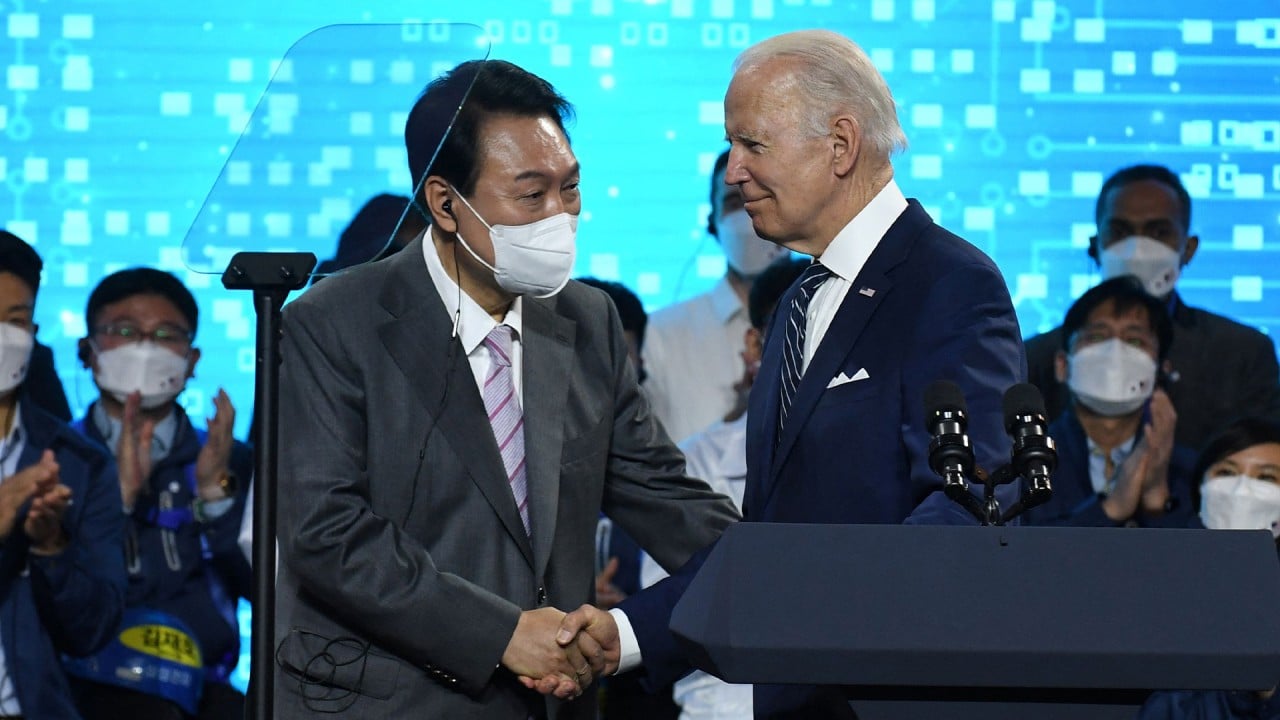
Two top US and China officials meet for a third time this year to ‘reduce risks’
- US National Security Adviser Jake Sullivan and top Chinese diplomat Yang Jiechi discuss Taiwan, Ukraine, North Korea and Washington’s Indo-Pacific diplomatic efforts
- ‘Sullivan laid out US views on the region and the enduring commitment of the United States as an Indo-Pacific nation,’ a US official says
China’s top diplomat Yang Jiechi and US National Security Adviser Jake Sullivan held their third meeting in as many months to “reduce risks” amid an extended US focus on diplomacy in Asia that has drawn recriminations from Beijing.

The meeting, which the official called “candid, in-depth, substantive and productive”, was held “on the heels of an intense period of diplomacy in the Indo-Pacific and Mr. Sullivan laid out US views on the region and the enduring commitment of the United States as an Indo-Pacific nation”.
Citing Blinken’s speech, Yang said that China is “resolutely against” defining China-US relations as “in competition”, according to state news agency Xinhua’s account of the meeting. Blinken has framed the bilateral relationship as “strategic competition” since assuming his current role last year, and repeated in last month’s speech.
Regarding Taiwan, Sullivan said that the US position boiled down to “ensuring peace and stability across the strait” and “ensuring that there are no unilateral changes to the status quo”, according to the US official.
China insists it has sovereign rights over Taiwan Strait
This followed the assertion earlier on Monday by Chinese foreign ministry spokesman Wang Wenbin that the self-ruled island, which Beijing sees as a breakaway province, does not lie in “international waters”.
While agreeing with Sullivan that communication would “better manage conflicts”, Yang blamed the US for frictions in China-US relations, and asserted Beijing’s stances on “national sovereignty and territorial rights”, according to Xinhua.
“The Taiwan problem is within the political foundation of the China-US relations. There will be an overturning effect if not handled properly,” Xinhua quoted Yang as saying. “This risk would increase if the US continues its approach of ‘using Taiwan to contain China’ and Taiwan’s adoption of ‘relying on the US for independence’.”
“The US has been obdurate in expanding suppression against China in a fuller range of issues,” the report added. “This does nothing in resolving the US’ own problems, it also pushes China-US relations to a very difficult state. It is extremely damaging to the bilateral exchanges and cooperation between the two countries.
“The US should correct its strategic understanding on China,” Yang was quoted by Xinhua as saying.
Sullivan also called for the release of Americans “wrongfully detained” and “subjected to exit bans” in China, the US official said without citing any specific cases.
“We feel like we’ve advanced a number of our key priorities, a number of key initiatives, but we do think … it’s important to be very clear with China about what our intentions are, what the focus of these actions are and are not, that these are about an affirmative US vision for the region, and that this is about advancing US interests,” the official added.
The official called the meeting productive since it was critical to “avoiding potential miscommunication, misinterpretation, reducing risk … for managing the relationship in a healthy and responsible way”.
Sullivan and Yang last spoke in a telephone conversation on May 18. The two held a seven-hour meeting in Rome on March 14 focused primarily on Russia’s invasion of Ukraine.
On that subject, the US official said that Sullivan “reiterated concerns that the United States has raised repeatedly with China with respect to certain kinds of assistance to Russia”, without citing any specific transgressions.
Asked about any future meetings between Biden and Chinese President Xi Jinping, she said that “potential meetings in the months ahead” could be expected but that there was “nothing specific planned at this time”.
China, US defence chiefs square off on Taiwan in first face-to-face talks
Washington and Beijing have displayed their split most recently at the Shangri-La Dialogue in Singapore over the weekend, when US Defence Secretary Lloyd Austin and his Chinese counterpart Wei Fenghe squared off over Taiwan and Ukraine in a meeting and in keynote speeches to the security summit.
Asked about Wei’s vow to “fight at all costs” any move to make Taiwan independent from mainland China, the US official said: “I certainly don’t think the defence minister’s comments were helpful.”
US officials expressed frustration about China’s refusal to condemn Russian’s invasion of Ukraine and its criticism of Western sanctions on Moscow. Additionally, China’s joining with Russia to veto a US-led push to impose more UN sanctions on North Korea raised US concerns over Beijing and Moscow’s “no limits” partnership.
The veto has added to Washington’s worries about China’s stance on North Korea – especially with US and South Korean officials warning that Pyongyang might test a nuclear weapon imminently. If it happens, it would be the country’s seventh nuclear test.
South Korea’s new foreign minister Park Jin met with Blinken in Washington on Monday, and both diplomats urged Pyongyang not to proceed with any test, or else face even more international isolation.
Park also said Beijing should play “a very positive role” to persuade Pyongyang not to go ahead with the move.
Additional reporting by Jacob Fromer and Robert Delaney


